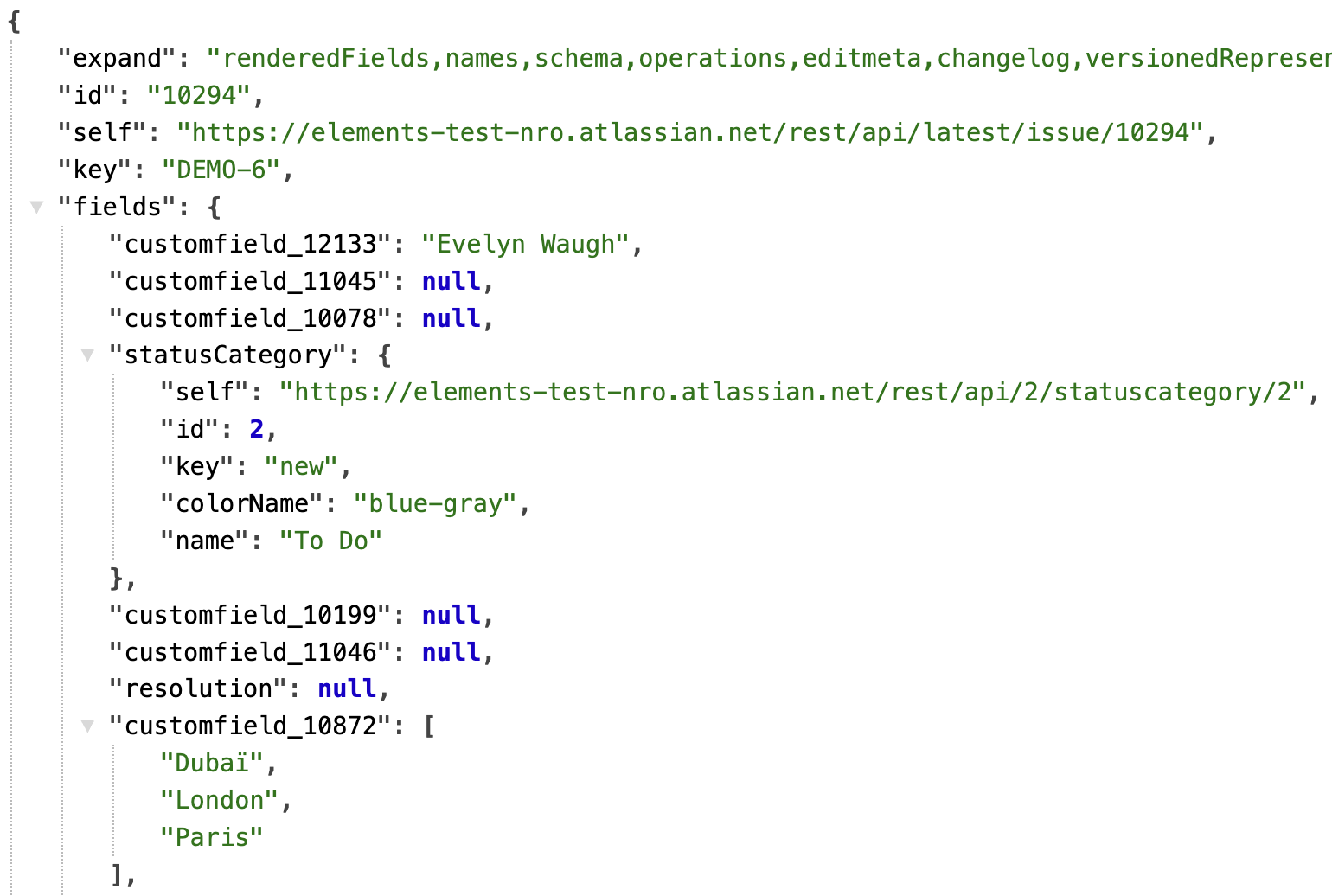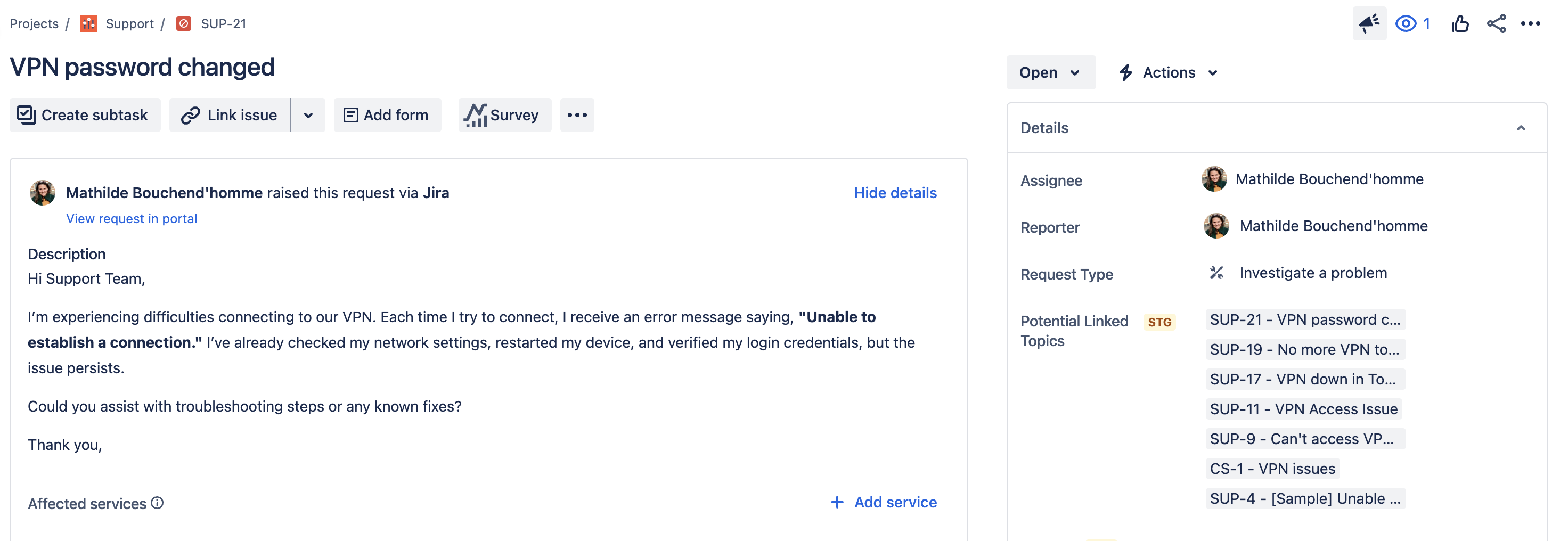Writing conditional queries with Apache FreeMarker
Elements Connect supports the use of FreeMarker for dynamic query construction. FreeMarker is a powerful templating engine that allows you to create queries that can generate dynamic content based on data and conditions. This documentation provides an overview of how to use FreeMarker with Elements Connect Cloud.
FreeMarker language is available for database and REST API data sources:
For Connected Items: in field query and field template
For Custom Fields: in field query only
Support for FreeMarker in Custom Fields templates is in our backlog.
Using FreeMarker in queries
FreeMarker is used to create dynamic queries by allowing you to embed conditional logic and data-driven elements into your queries. This enables more flexible and powerful interactions with external data sources.
Basic Syntax
This section is a subset of what you can do with FreeMarker.
For a full guide, see the official Apache FreeMarker Manual.
Directives
You use FTL tags to call directives. There are two kind of FTL tags:
Start-tag:
<#directivename parameters>End-tag:
</#directivename>
This is similar to HTML or XML syntax, except that the tag name starts with #.
Comment Similar to HTML comments, but they are delimited by |
CODE
|
Use |
CODE
|
Access a variable Use |
CODE
|
Use |
CODE
|
Loops |
CODE
|
Expressions: built-in references & operations
Built-ins are like methods that are added to the objects by FreeMarker. To prevent name clashes with actual methods and other sub-variables, instead of dot (.), you separate them from the parent object with question mark (?).
Empty check method (for sequence) Use |
CODE
|
Join (for sequence)
|
CODE
|
URL Encoding (for string) Use to encode a string for use in a URL. |
CODE
|
Check on value (for sequence) |
CODE
|
Some other expressions that might come useful:
Arithmetic Operations |
CODE
|
Just the usual logical operators:
The operators will work with boolean values only. Otherwise an error will abort the template processing. |
CODE
|
Use To test two values for inequality you use |
CODE
|
Use |
CODE
|
Variables
Most of the variables that a typical template works with come from the data model. However, templates can also define their own variables—usually to hold loop counters, temporary results, macros, etc.
Issue variables The Issue variable is data that acts like a JSON. It stores other variables (the so called sub variables) by a lookup name (e.g., "priority", "reporter" or "key"). What you can retrieve from the issue:
|
⚠️ This advanced check is only relevant when configuring connected items queries. For custom fields, you can only use the simpler |
Issue Variables However, when you work with Connect custom fields, you can access all variables returned by the JIRA Issue API. To explore the available data, you can view the JSON content returned by the API by calling  To access a field’s attributes, simply omit the “fields” prefix.
🤝 Standard Connect variables detailed in this documentation are still available. | If an issue has an ID (i.e., it’s already created), we retrieve the watcher; otherwise, we retrieve the users.
CODE
If the issue has components, we retrieve the first one; otherwise, we retrieve all the project components.
CODE
If an issue has a fix version, we retrieve the number of issues with that same fix version; otherwise, we retrieve the number of issues using the default fix version ID.
CODE
|
Project variables
|
CODE
|
Other variables Many other variables can be used in FreeMarker templates. |
CODE
|
|
CODE
|
Use |
CODE
|
Example queries on Jira’s API
[if/else] Dynamic JQL Query Based on Priority
CODE<#if $issue.priority == "High"> /search?jql=priority=high <#elseif $issue.priority == "Low"> /search?jql=priority=low <#else> /search?jql=priority=medium </#if>[?join][?size][if/else] Query Excluding Projects
Let’s assume customfield_10074 is a multiple value project picker fields, containing a list of project keys:
"customfield_10074": [
"PJT1",
"PJT2"
],Then, the query to retrieve all issues except those related to previously selected projects could be:
<#if issue.customfield_10074?size != 0>
<#assign projects = issue.customfield_10074?join(",")>
/search?jql=project NOT IN (${projects})
<#else>
/search?jql=order by created DESC
</#if> → The ?join(",") built-in is mandatory here to transform the array into a string for the JQL.
[assign][?split][?map][?join] Retrieve all ticket potentially linked to same topic
<#-- Extract keywords from the summary by splitting on spaces -->
<#assign keywords = issue.summary?split(" ")>
<#-- Join keywords with OR for a flexible JQL query -->
<#assign keywordQuery = keywords?map(word -> "summary ~ \"" + word + "\"")?join(" OR ")>
/search?jql=${keywordQuery} ORDER BY created DESCThat’s what this query could look like in a read-only custom field:

Using FreeMarker in templates
For Connected Items only, Freemarker can also be used to format the display of data within Elements Connect templates. Please check here for additional information.
Best Practices
Ensure your FreeMarker templates are correctly validated with the query tester to avoid runtime errors.
Optimize your queries and templates for performance, especially with large datasets.
For complex requests, don’t hesitate to use comments to facilitate maintenance
Usage limitations
FreeMarker is not available in the template part for Custom Fields (no conditional display is possible)
Number of characters in the query is limited to 5000.
Additional Resources
For any further assistance or questions, please contact our support team.
